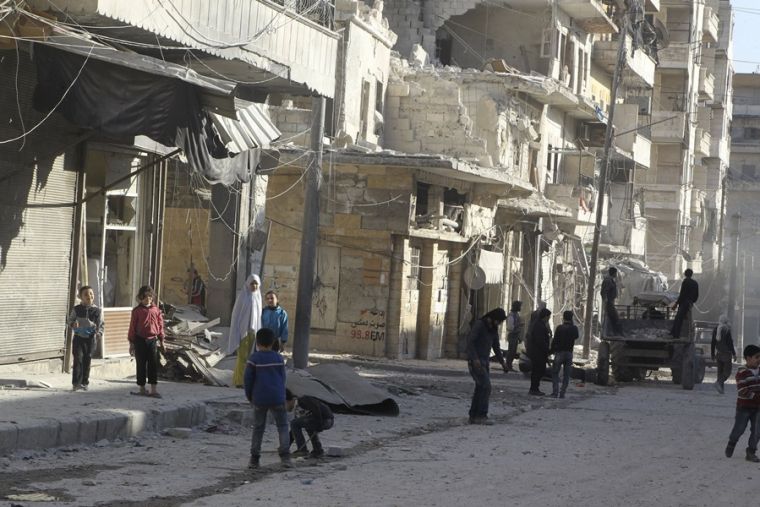Obama hit for lack of leadership as Syrian conflict intensifies; loss of U.S. credibility in region seen

U.S. President Barack Obama has drawn criticism in Europe for his perceived lack of leadership in the Syrian conflict, which has shown indications of heading towards new levels of intensity.
On Tuesday, former French Foreign Minister Laurent Fabius hit Obama over his last-minute refusal to take action against Syria in 2013 after evidence surfaced that the regime of President Bashar al-Assad used chemical weapons against civilians.
"Obama had said, 'If he uses chemical weapons, it will cross a red line... And that red line was crossed with no reaction," Fabius told Europe 1 Radio.
"When the history books are written, we'll see that this was a turning point, not only in the Middle East crisis but also for Ukraine, Crimea and the entire world," Fabius said, adding that he regretted the "ambiguities" and "lack of very strong engagement" Washington has demonstrated with respect to Syria.
The fresh criticism against Obama comes after Washington was seen to appear "unable and unwilling'' to prevent its ally Turkey from bombing Kurdish fighters inside Syria, and to rein in Russia's mounting military involvement on behalf of Assad, Newsmax reported.
Monday's bombing of hospitals and other civilian targets around the northern Syrian city of Aleppo left 50 people dead, according to the United Nations.
Jonathan Schanzer of the Foundation for Defense of Democracies in Washington blasted the U.S. State Department over its repeated practice of blaming the continued brutality of the Assad regime against its own people, saying "historians will one day look back at our archives and wonder what we thought we'd accomplish with such statements.''
Republican Senator John McCain also lashed out at the Obama administration's Syrian policy. "The intensification of Russian airstrikes in Syria over the past two days, including the bombing of schools and hospitals, is tragically unsurprising.''
The White House has dismissed the accusations of inaction, claiming the military coalition of 65 countries it has led for the past 18 months has carried out thousands of airstrikes against the Islamic State (ISIS).
On Friday, the United States and Russia agreed in Munich on a "cessation of hostilities" in Syria within a week with the goal of re-launching the peace process and halting the exodus of civilians. They also agreed to open humanitarian aid corridors.
But with Moscow intensifying its air campaign in northern Syria and Turkey stepping up calls for a ground offensive, any hope for a truce seems increasingly illusory.
Joseph Bahout, a scholar at the Carnegie Endowment, said the U.S, has "no more credibility in the Middle East."
Experts Michael Ignatieff and Leon Wieseltier also wrote in a recent article from the Brookings Institution: "Western inaction is the result of five years of empty declarations that Syrian President Bashar al-Assad must go, of half-hearted arming of rebel groups, of allowing the red line on chemical weapons to be crossed and of failing adequately to share Europe's refugee burden as it buckles under the strain.''











